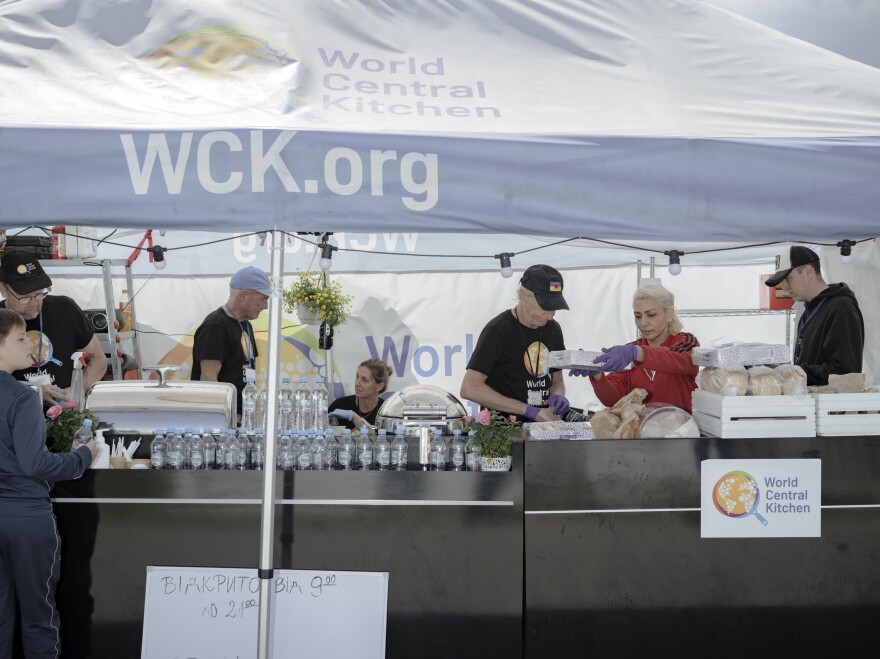MEDYKA, Poland — On a warm, windy day in the middle of May, Harry Scrymgeour is hard at work breaking down a humanitarian relief tent that helped thousands of Ukrainians during the height of Europe's refugee crisis.
"Of course, the sort of great joy in tearing down this camp is that it has been useful. It is no longer useful," Scrymgeour says.
That's because the flow of refugees from Ukraine has actually reversed at the Polish border crossing in Medyka, where his group is based, with more people now going into Ukraine than out.
Scrymgeour is part of Siobhan's Trust, a small Scottish charity named after his late mother. They have been here since the start of the war, back when temperatures were below freezing and the refugee intake was high.

During the peak of the crisis, 1,500 Ukrainians were crossing into Poland every hour at Medyka, and humanitarian workers rushed to the Polish side of the border to help.
Today, Siobhan's Trust receives more requests for pizza from other aid workers passing the time than refugees themselves. And in response, people like Scrymgeour, and another aid group Humanity First U.K., are adapting new strategies.
Three days after the war began, Humanity First U.K. set up medical tents on both sides of the Poland-Ukraine border. Back then, they would provide around-the-clock medical care. These days, the tent is filled with more staff than patients.
"We're not seeing as much of the medical influx that we used to," says Dr. Aziz Hafiz, the chairman of Humanity First U.K.

They have treated more than 26,000 people since the war started, and while they are still helping some refugees, they have shifted focus to supporting their efforts inside Ukraine, where they provide medication to orphanages and hospitals.
Because while the scene at Medyka is one of relative calm, the violence and death continues in the south and east of Ukraine as Russia now focuses its attack there. More than 6 million people have left Ukraine since the war began, and another 6 million or so are displaced within the country.
"So it's essentially a base point until the war is over," Hafiz says of Medyka, "Where we can actually then shift camp into cities and villages where needed."
The location next to the border is convenient for his team to cross and deliver medical supplies, while also still treating issues like cardiac arrest, diabetes and high blood pressure from those who do leave Ukraine.

"People that have become refugees do not have their basic medical supplies that they will usually carry with them," Hafiz says.
"There's a lot of tooing and froing, as families are struggling to juggle lives on both sides."
Back at Siobhan's Trust, volunteers dish out coffee and churn out the last few pizzas before they shut down their tent at Medyka and turn elsewhere.
"We wanted to keep this alive just in case we could react to a new wave of refugees that might need our help," Scrymgeour says. "But right now, all our resources are going towards delivering food to places where there are refugees who are going to be there for the medium time."

For Siobhan's Trust, this isn't the end of the war or their ability to help — it's the start of the next phase that could continue for months or even years to come.
Copyright 2023 NPR. To see more, visit https://www.npr.org.





